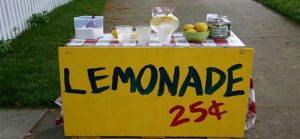I was watching Shark Tank last night and one of the pitches was for a fidget toy (not a spinner) designed to help with ADHD and other learning disabilities.
As it turned out the majority of the sharks had grown up with a learning disability that led them to doing poorly in school, and all obviously went on to become massively self-made success stories.
We get a lot of kids at the gym that struggle in school and are looking for a outlet, and some of them are amazingly fast learners capable of being great leaders... unless you asked their school teachers from what I've heard.
When you have a child, or are a person, who learns differently it's very important to remember that success in school does not always translate to success in life. Yes, it's important, but with the children who struggle in school it is absolutely vital to help them find something they can succeed and do well at.
"There's a great freedom to being dyslexic … if you can avoid labeling yourself as a loser in a school system that measures people by A's and B's." -- Barbara Corcoran
I also don't think the Sharks are unique in their stats, a very large chunk of self-made multi-millionaires where people that did poorly in school do to one learning disability or another.
The message kids that struggle need to hear is that they can succeed, despite their struggles, if they find the right thing. Instead they too often here things like this:
"When I was in 11th grade I was diagnosed with ADD," Burns says on the episode. "The woman who diagnosed me said that my ADD was so severe that I would never be able to survive at a four-year university, and I shouldn't try to pursue a job that required any type of education."
But good grades in school are only one path to success, and education can come in many forms. When you have a child with a different learning style it is important to help them find there "A-Game" instead of focusing only on the areas of struggle.
"If I were to make a list of my top, say, seven or eight entrepreneurs I've invested in on 'Shark Tank,' I would say all but one have a learning disability," she says.
Confidence is a big element of success, and when you have someone that struggles by traditional measurements in school it is very important to help them find the things that they can succeed at. Having one or two things that you can not only succeed at, but excel at can build that confidence that will help in all areas of life, and confidence can possibly turn D's into C's in way's that yet another extra hour of struggling through reading text books can't.
Source https://www.cnbc.com/2017/10/09/why-barbara-corcoran-invested-50000-in-fidgetland-on-shark-tank.html



